Discover GZERO World with Ian Bremmer
GZERO World with Ian Bremmer

GZERO World with Ian Bremmer
Author: GZERO Media
Subscribed: 1,675Played: 77,577Subscribe
Share
© GZERO Media 2025
Description
The United States will no longer play global policeman, and no one else wants the job. This is not a G-7 or a G-20 world. Welcome to the GZERO, a world made volatile by an intensifying international battle for power and influence. Every week on this podcast, Ian Bremmer will interview the world leaders and the thought leaders shaping our GZERO World.
414 Episodes
Reverse
At a moment when Americans can’t agree on much of anything, one unlikely institution still commands broad trust: Wikipedia. Ian Bremmer sits down with Wikipedia cofounder Jimmy Wales to ask why the crowdsourced encyclopedia remains one of the most visited and relied-upon sites in the world, even as trust in media, government, and tech companies continues to collapse.That trust, Wales argues, comes from Wikipedia’s decentralized model and its refusal to speak with a single authoritative voice on contested issues. “We don’t try to answer the question or take a side,” Wales says. “What we do is describe the debate.” But that principle is under strain. Wales addresses recent backlash over Wikipedia’s handling of politically sensitive topics, including Gaza, where he says the site crossed an important line by adopting language that lacked broad consensus. “For Wikipedia to speak in its own voice requires an extremely high bar,” he explains.Bremmer and Wales also explore how artificial intelligence is reshaping the information ecosystem. While AI systems are already trained on Wikipedia’s content, Wales says the platform is moving cautiously, prioritizing transparency, open source tools, and independence over partnerships with big tech. “Wikipedia’s biggest liability is also its biggest strength,” Wales says. “No one owns it.” In an internet increasingly dominated by centralized platforms and opaque algorithms, Wales makes the case that Wikipedia’s model, messy, imperfect, and community-driven, may be more necessary than ever.Host: Ian BremmerGuest: Jimmy Wales
Subscribe to the GZERO World with Ian Bremmer Podcast on Apple Podcasts, Spotify, or your preferred podcast platform, to receive new episodes as soon as they're published. Hosted by Simplecast, an AdsWizz company. See pcm.adswizz.com for information about our collection and use of personal data for advertising.
Computer scientist and Nobel laureate Geoffrey Hinton joins Ian Bremmer on the GZERO World podcast to talk about artificial intelligence, the technology transforming our society faster than anything humans have ever built. The question is: how fast is too fast? Hinton is known as the “Godfather of AI.” He helped build the neural networks that made today’s generative AI tools possible and that work earned him the 2024 Nobel Prize in physics. But recently, he’s turned from a tech evangelist to a whistleblower, warning that the technology he helped create will displace millions of jobs and eventually destroy humanity itself.The Nobel laureate joins Ian to discuss some of the biggest threats from AI: Mass job loss, widening inequality, social unrest, autonomous weapons, and eventually something far more dire: AI that becomes smarter than humans and might not let us turn it off. But he also sees a path forward: if we can model good behavior and program ‘maternal instincts’ into AI, could we avoid a worst-case scenario?Host: Ian BremmerGuest: Geoffrey Hinton
Subscribe to the GZERO World with Ian Bremmer Podcast on Apple Podcasts, Spotify, or your preferred podcast platform, to receive new episodes as soon as they're published. Hosted by Simplecast, an AdsWizz company. See pcm.adswizz.com for information about our collection and use of personal data for advertising.
The US is ramping up pressure on Venezuela, with the USS Gerald R. Ford deployed to the region, CIA covert operations approved by the White House, and strikes on suspected narco‑trafficking vessels attributed to Caracas. Many analysts now see regime change as the ultimate goal. On the GZERO World Podcast, Ian Bremmer and former US Ambassador James Story game out what a US intervention in Venezuela might look like—and more importantly, how the US would manage the aftermath.Story points out that while removing Nicolás Maduro may sound feasible, rebuilding Venezuela’s institutions, economy and social fabric would be far harder. “The country is a failed state,” he says. “You’re going to need the military to help you secure peace while you rebuild.” As Washington talks of sanction relief and diplomatic pressure, Story asks: does the US have the capability, resources or will to stay for the long haul?Host: Ian BremmerGuest: James Story
Subscribe to the GZERO World with Ian Bremmer Podcast on Apple Podcasts, Spotify, or your preferred podcast platform, to receive new episodes as soon as they're published. Hosted by Simplecast, an AdsWizz company. See pcm.adswizz.com for information about our collection and use of personal data for advertising.
As populations grow and communities evolve, transportation authorities and urban infrastructure are seeking ways to modernize.In this episode of “Local to global: The power of small business,” host JJ Ramberg sits down with Chapin Flynn, Senior Vice President of Transit and Urban Mobility at Mastercard, and Mark Langmead, Director of Revenue & Compass Operations at TransLink in Vancouver, to explore how cities are making transit easier, faster, and more seamless for riders–an approach known as frictionless urban mobility.They discuss how innovations like contactless tap-and-go technologies are reducing dwell time, speeding up boarding, and producing real-time data that helps transit agencies better plan and manage their systems.Next gen urban mobility also has the potential to benefit small businesses: when transit becomes simpler, riders shift spending from automotive fuel to Main Street, foot traffic grows near transit arteries, and neighborhoods become more connected.“Local to global: The power of small business” is a podcast series from GZERO Media’s Blue Circle Studios and Mastercard, where we look behind the curtain to explore the world of small businesses and why they’re positioned to play an even bigger role in the future of the global economy. Host: JJ RambergGuests: Chapin Flynn, Mark Langmead
Subscribe to the GZERO World with Ian Bremmer Podcast on Apple Podcasts, Spotify, or your preferred podcast platform, to receive new episodes as soon as they're published. Hosted by Simplecast, an AdsWizz company. See pcm.adswizz.com for information about our collection and use of personal data for advertising.
In 1929, unchecked speculation and economic hype helped fuel the worst financial crash in modern history. Nearly a century later, New York Times journalist and CNBC anchor Andrew Ross Sorkin sees troubling parallels. On the GZERO World podcast, he joins Ian Bremmer to talk about his new book, "1929: Inside the Greatest Crash in Wall Street History—and How It Shattered a Nation," and whether today’s economy is headed for another cliff.Sorkin warns that behind today’s AI boom and market exuberance lies an undercurrent of fragility—historic debt levels, shaky private credit markets, and investors chasing returns with little oversight. While the technology behind AI is real, much of the money flooding in feels familiar to those who’ve studied speculative bubbles before. “We're not going to have another 1929,” Sorkin says, “but I think it's very possible. Actually, I would argue it's almost impossible for us not to have another 1999.” He sees eerie parallels between the past and the present: massive speculative investments, surging inequality, and a public increasingly disconnected from financial realities.But one thing stands out today: silence. Sorkin warns that many CEOs and financial leaders, despite recognizing the risks, are unwilling to speak out publicly. “If we ever get to a moment where we need to make very difficult decisions,” he says, “are there going to be leaders willing to stand up and explain what needs to happen?”Host: Ian BremmerGuest: Andrew Ross Sorkin
Subscribe to the GZERO World with Ian Bremmer Podcast on Apple Podcasts, Spotify, or your preferred podcast platform, to receive new episodes as soon as they're published. Hosted by Simplecast, an AdsWizz company. See pcm.adswizz.com for information about our collection and use of personal data for advertising.
What can the US learn from the benefits–and perils–of China’s quest to engineer the future? Tech analyst and author Dan Wang joins Ian Bremmer on the GZERO World Podcast to discuss his new book "Breakneck," China’s infrastructure boom, and the future of the US-China relationship. Over the last two decades, China has transformed into what Wang calls an “engineering state,” marshaling near unlimited resources to build almost anything–roads, bridges, entire cities overnight. That investment has created astounding growth, but also domestic challenges and soaring debt. It’s also led to a stubborn belief within the Chinese government that society itself can be engineered from the top down, where the state treats its people like a building material that can be tweaked or destroyed if necessary. Wang and Bremmer dig into all things US-China: the future of the relationship, the surprising similarities between the two countries, and whether Washington can learn from Beijing’s example without repeating its mistakes.Host: Ian BremmerGuest: Dan Wang
Subscribe to the GZERO World with Ian Bremmer Podcast on Apple Podcasts, Spotify, or your preferred podcast platform, to receive new episodes as soon as they're published. Hosted by Simplecast, an AdsWizz company. See pcm.adswizz.com for information about our collection and use of personal data for advertising.
US President Donald Trump has been piling the pressure on Russia and Venezuela in recent weeks. He placed sanctions on Russia’s two largest oil firms and bolstered the country’s military presence around Venezuela – while continuing to bomb ships coming off Venezuela’s shores. But what exactly are Trump’s goals? And can he achieve them? And how are Russia and Venezuela, two of the largest oil producers in the world, responding? GZERO's Zac Weisz and Riley Callanan discuss. Hosts: Zac Weisz, Riley Callanan
Subscribe to the GZERO World with Ian Bremmer Podcast on Apple Podcasts, Spotify, or your preferred podcast platform, to receive new episodes as soon as they're published. Hosted by Simplecast, an AdsWizz company. See pcm.adswizz.com for information about our collection and use of personal data for advertising.
This is normally where you’ll find extended versions of Ian Bremmer's interviews from the public television show, but today we're bringing you something a little different. Ian just returned from Tokyo, Japan where he delivered his annual State of the World address to packed audience of diplomats, business leaders, and opinion makers from around the world.Each year, this speech is a chance to take stock of where things stand geopolitically, and today the picture is more uncertain than ever. We’re not just facing new conflicts and crises. We’re facing a deeper transformation of the global order, driven most significantly by the world’s most powerful country stepping back. The United States isn't losing influence because of weakness. It’s walking away by choice.That decision is reshaping alliances, weakening global institutions, and leaving many of America’s closest partners searching for a plan B. In the absence of leadership, the G-Zero world becomes more chaotic, more transactional, and less stable.Host: Ian Bremmer
Subscribe to the GZERO World with Ian Bremmer Podcast on Apple Podcasts, Spotify, or your preferred podcast platform, to receive new episodes as soon as they're published. Hosted by Simplecast, an AdsWizz company. See pcm.adswizz.com for information about our collection and use of personal data for advertising.
Can we align AI with society’s best interests? Tristan Harris, co-founder of the Center for Humane Technology, joins Ian Bremmer on the GZERO World Podcast to discuss the risks to humanity and society as tech firms ignore safety and prioritize speed in the race to build more and more powerful AI models. AI is the most powerful technology humanity has ever built. It can cure disease, reinvent education, unlock scientific discovery. But there is a danger to rolling out new technologies en masse to society without understanding the possible risks. The tradeoff between AI’s risks and potential rewards is similar to deployment of social media. It began as a tool to connect people and, in many ways, it did. But it also become an engine for polarization, disinformation, and mass surveillance. That wasn’t inevitable. It was the product of choices—choices made by a small handful of companies moving fast and breaking things. Will AI follow the same path?Host: Ian BremmerGuest: Tristan Harris
Subscribe to the GZERO World with Ian Bremmer Podcast on Apple Podcasts, Spotify, or your preferred podcast platform, to receive new episodes as soon as they're published. Hosted by Simplecast, an AdsWizz company. See pcm.adswizz.com for information about our collection and use of personal data for advertising.
Public disgust with Washington is growing as the government shutdown continues, with both Democrats and Republicans seemingly unwilling to compromise. Is the American political system broken beyond repair? Former GOP fundraiser and chief of staff for Mitch McConnell, Steven Law, joins Ian Bremmer on the GZERO World Podcast to discuss the state of America’s political parties ahead of a pivotal midterm election year.While Congress seems more polarized and divided than ever, Law believes that the American public writ large wants leaders who are constructive and unifying, even as they’re prosecuting a strong agenda. But exactly what that agenda is, is what’s unclear. According to Law, the GOP has become the party of Trump while the Democrats are experiencing an identity crisis and period of “massive redefinition.” What should parties focus on ahead of next year’s midterms? Can either side break through the deep polarization in DC to deliver a message that resonates with voters?Host: Ian BremmerGuest: Steven Law
Subscribe to the GZERO World with Ian Bremmer Podcast on Apple Podcasts, Spotify, or your preferred podcast platform, to receive new episodes as soon as they're published. Hosted by Simplecast, an AdsWizz company. See pcm.adswizz.com for information about our collection and use of personal data for advertising.
Investing in health and science research isn’t just about curing diseases. It has huge impacts across society, from creating jobs to driving economic growth to boosting national competitiveness. Study shows that every $ invested in the life sciences industry generates $3 in GDP globally, whereas every job created in the life sciences industry generates five in the global economy. Life sciences are one of the most powerful engines of prosperity, yet many governments still underestimate their economic return.In this episode of The Ripple Effect: Investing in Life Sciences, host Dan Riskin speaks with Patrick Horber, President of Novartis International, and David Gluckman, Vice Chairman of Investment Banking and Global Head of Healthcare at Lazard. Together, they break down the outsized economic impact of life science innovation, from trillions in US bioscience output to China’s meteoric rise as a global R&D hub. The conversation delves into the ways governments can support innovation with not just money, but through policy and regulation; plus, some of the best ways that countries can help the sector secure investment, talent, and long-term growth.This limited series, produced by GZERO’s Blue Circle Studios in partnership with Novartis, examines how life science innovation plays a vital role in fulfilling that commitment. Host: Dan RiskinGuests: Patrick Horber, David Gluckman
Subscribe to the GZERO World with Ian Bremmer Podcast on Apple Podcasts, Spotify, or your preferred podcast platform, to receive new episodes as soon as they're published. Hosted by Simplecast, an AdsWizz company. See pcm.adswizz.com for information about our collection and use of personal data for advertising.
Militarily, Israel is dominant. Diplomatically, it’s more isolated than ever.This week, Israeli Prime Minister Benjamin Netanyahu made his fourth trip to the White House since President Trump returned to office, standing beside him to unveil what Trump called a “landmark” Gaza peace proposal. But behind the bold language is a growing distance between Israel and the world. Gaza has been devastated, Hamas is on its heels, and yet, the cost to Israel’s global standing continues to rise.Former US diplomat and Middle East peace negotiator Aaron David Miller joins Ian to unpack the uncomfortable truth: Israel may be winning on the battlefield, but it’s losing support in global capitals, and possibly at home.“Not a single cost or consequence has been imposed by any Arab state on Israel,” Miller says. “They’ve done nothing. The Arab states are running scared of Trump. They’re either afraid of him or they want something from him.”From European governments pulling investments and recognizing Palestinian statehood, to rising grassroots pushback across American campuses, Israel’s brand is eroding—even as Netanyahu locks arms more tightly with Trump.Host: Ian BremmerGuest: Aaron David Miller
Subscribe to the GZERO World with Ian Bremmer Podcast on Apple Podcasts, Spotify, or your preferred podcast platform, to receive new episodes as soon as they're published. Hosted by Simplecast, an AdsWizz company. See pcm.adswizz.com for information about our collection and use of personal data for advertising.
Imagine an economy where products are designed to be reused, repaired, and regenerated instead of ending up as waste. That’s the circular economy, a model that redefines recycling and transforms how small businesses operate.In this episode of Local to Global: The power of small business, host JJ Ramberg sits down with Ellen Jackowski, Chief Sustainability Officer at Mastercard, and Rachel McShane, Chief Financial Officer at Depop, to discuss the scale of the circular economy, why circular practices boost both sustainability and profitability, and where the industry is headed next.From Depop’s sustainable fashion marketplace that empowers small sellers and extends the life of clothing to Mastercard’s digital solutions that enhance the consumer experience and measure impact, the discussion highlights ways entrepreneurs can launch reuse, resale, and take-back programs. The conversation also addresses the pitfalls of greenwashing and the importance of credible, consistent standards.“Local to global: The power of small business” is a new podcast series from GZERO Media's Blue Circle Studios and Mastercard, where we look behind the curtain to explore the world of small businesses and why they’re positioned to play an even bigger role in the future of the global economy. Host: JJ RambergGuests: Ellen Jackowski, Rachel McShane
Subscribe to the GZERO World with Ian Bremmer Podcast on Apple Podcasts, Spotify, or your preferred podcast platform, to receive new episodes as soon as they're published. Hosted by Simplecast, an AdsWizz company. See pcm.adswizz.com for information about our collection and use of personal data for advertising.
The war in Ukraine has entered a dangerous new phase, with Russia sending bigger, more powerful drone attacks across the border nearly every day. Gone are the tanks, columns of troops, and heavy artillery from the early days of Moscow’s full-scale invasion. Now, tens of thousands of drones swarm Ukraine’s skies at any given moment. Christopher Miller, chief Ukraine correspondent at the Financial Times, joins Ian Bremmer on the GZERO World Podcast to discuss the war’s evolution from a conventional land invasion into a high-tech war of attrition dominated by drones. Artificial intelligence, drones, all types of unmanned vehicles are being used to wage war alongside traditional tanks and artillery. Civilians in Ukraine’s cities are under constant threat from aerial attacks, sheltering in subways and bomb shelters every night. Despite immense resilience, Ukraine’s people are getting exhausted and the country is running out of manpower. How long can Ukraine hold out? Is a diplomatic ceasefire at all a possibility?Host: Ian BremmerGuest: Christopher Miller
Subscribe to the GZERO World with Ian Bremmer Podcast on Apple Podcasts, Spotify, or your preferred podcast platform, to receive new episodes as soon as they're published. Hosted by Simplecast, an AdsWizz company. See pcm.adswizz.com for information about our collection and use of personal data for advertising.
Wars are raging, tensions are rising, and trust in global institutions is collapsing. From Gaza to Ukraine to Sudan, the world is on fire—and the one institution meant to keep the peace is facing a historic financial crisis.On the GZERO World Podcast, Ian Bremmer speaks with United Nations Secretary-General António Guterres about the UN’s role in an era of war, division, and dwindling support. With the US cutting funding and other major powers following suit, the UN is preparing to slash its budget by 15%—even as demand for peacekeeping and aid hits record highs.“What’s happening today in Gaza is morally, politically, and legally intolerable” Guterres tells Bremmer. With funding for life-saving aid programs evaporating, the Western-led global order that has kept the world on solid ground since WWII risks failing just when it is needed most. Host: Ian BremmerGuest: António Guterres
Subscribe to the GZERO World with Ian Bremmer Podcast on Apple Podcasts, Spotify, or your preferred podcast platform, to receive new episodes as soon as they're published. Hosted by Simplecast, an AdsWizz company. See pcm.adswizz.com for information about our collection and use of personal data for advertising.
Is the clean energy revolution finally here? Over the past few years, the world has experienced a sudden and overwhelming surge in renewable energy installation and generation, outpacing even the most optimistic predictions from experts. This week on the GZERO World Podcast, Ian Bremmer talks to Bill McKibben, an environmentalist and author, about the stakes and scale of the global energy transformation. His new book, Here Comes the Sun, argues renewables aren’t just a climate fix—they’re a political and economic opportunity. But while China and Europe are pushing ahead in the race to power the future, the Trump administration is doubling down on fossil fuels. What happens if the US puts the brakes on clean energy, just as the rest of the world hits the gas? Or rather... plugs in the solar battery? Do we risk being left in the dark?Host: Ian BremmerGuest: Bill McKibben
Subscribe to the GZERO World with Ian Bremmer Podcast on Apple Podcasts, Spotify, or your preferred podcast platform, to receive new episodes as soon as they're published. Hosted by Simplecast, an AdsWizz company. See pcm.adswizz.com for information about our collection and use of personal data for advertising.
On the latest episode of the GZERO World podcast, Ian Bremmer talks with world-renowned cancer researcher and Pulitzer Prize-winning author Siddhartha Mukherjee about the future of medicine—and why artificial intelligence might finally tip the scales in the decades-long war on cancer.Cancer remains the second leading cause of death in the US, killing nearly 1,700 people every day. But Mukherjee says AI is already reshaping the field, from radiology and diagnostics to identifying new carcinogens and designing entirely new cancer drugs. “Every time we do this in collaboration with a machine,” he explains, “the machine learns it, and it learns it forever.”In a wide-ranging conversation, Mukherjee breaks down three major areas where AI is advancing medicine: patient care, data mining, and generative drug development. He also weighs in on early cancer detection, how inflammation may hold the key to understanding new carcinogens, and why this moment may be the most hopeful in half a century of cancer research.Host: Ian BremmerGuest: Siddhartha Mukherjee
Subscribe to the GZERO World with Ian Bremmer Podcast on Apple Podcasts, Spotify, or your preferred podcast platform, to receive new episodes as soon as they're published. Hosted by Simplecast, an AdsWizz company. See pcm.adswizz.com for information about our collection and use of personal data for advertising.
The number of people forced to flee their homes because of war, persecution, humanitarian disaster or political collapse topped 123 million people in 2024. That’s double what it was just 10 years ago. Yet just as the need has exploded, the global aid system is unraveling. On the GZERO World Podcast, David Miliband, president & CEO of the International Rescue Committee sits down with Ian Bremmer to discuss the growing crisis as the number of refugees continues to rise and the US, once the anchor of the global aid system, shuts down USAID and drastically pulls back foreign funding.Miliband says we’re facing “a new abnormal,” with 275 million people facing humanitarian emergencies in 20 countries in crisis. The vast majority of displaced people are hosted in low and middle income countries, meaning the world’s poorest and most under-resourced places are shouldering a disproportionately high share of the burden. Miliband and Bremmer discuss the worsening humanitarian situation in places like Sudan and Gaza, the impact of US aid cuts, whether any nation or group of nations can fill the void, and where Miliband sees glimmers of hope amid so many intractable problems.Host: Ian BremmerGuest: David Miliband
Subscribe to the GZERO World with Ian Bremmer Podcast on Apple Podcasts, Spotify, or your preferred podcast platform, to receive new episodes as soon as they're published. Hosted by Simplecast, an AdsWizz company. See pcm.adswizz.com for information about our collection and use of personal data for advertising.
After nearly eight decades of on-again-off-again conflict, India and Pakistan neared the brink of all-out war last spring. The intense, four-day conflict was an unsettling reminder of the dangers of military escalation between two nuclear-armed adversaries. Though the ceasefire was reached and both sides claimed victory, Delhi and Islamabad are still on edge and tensions remain high. On the GZERO World Podcast, former Pakistani Foreign Minister Hina Khar joins Ian Bremmer to discuss Pakistan’s response to India’s strikes, which she believes were unjustified, and why Pakistan needs to defend itself from further aggression.One fifth of the world’s population lives on the Indian subcontinent, and Khar says putting them at stake because of a political conflict is dangerous because “you do not know how quickly you can go up the escalation ladder.” Bremmer and Khar also discuss the US role in mediating the conflict with India, Pakistan’s domestic and economic challenges, its strategic partnership with China, and the dangers for global security if the world abandons a rules-based international order.“As someone who was representing this country as foreign minister, I used to wonder, why were we reduced to eating grass to become a nuclear power?” Khar says, “And now, that is the only thing providing deterrence and security against a country which feels it can attack us anytime, any day.”Host: Ian BremmerGuest: Hina Khar
Subscribe to the GZERO World with Ian Bremmer Podcast on Apple Podcasts, Spotify, or your preferred podcast platform, to receive new episodes as soon as they're published. Hosted by Simplecast, an AdsWizz company. See pcm.adswizz.com for information about our collection and use of personal data for advertising.
From lawsuits and executive orders to funding cuts tied to antisemitism claims, the Trump White House is targeting institutions like Harvard and Columbia in what Feldman calls an effort to undermine independent centers of truth. “Trump's gone after universities, he's gone after media, and he's going after courts,” Feldman tells Ian. “Each in its own way is an independent institutional voice telling people, ‘This is the way things are.’”On the latest episode of the GZERO World Podcast, Feldman explains why this isn’t just about cancel culture or campus politics—it's about whether universities will remain places where truth is pursued freely, or "knuckle" under political pressure. He discusses Harvard’s legal fight with the administration, growing antisemitism on and off campus, and the deeper risks for American democracy if academic independence erodes.Host: Ian BremmerGuest: Noah Feldman
Subscribe to the GZERO World with Ian Bremmer Podcast on Apple Podcasts, Spotify, or your preferred podcast platform, to receive new episodes as soon as they're published. Hosted by Simplecast, an AdsWizz company. See pcm.adswizz.com for information about our collection and use of personal data for advertising.


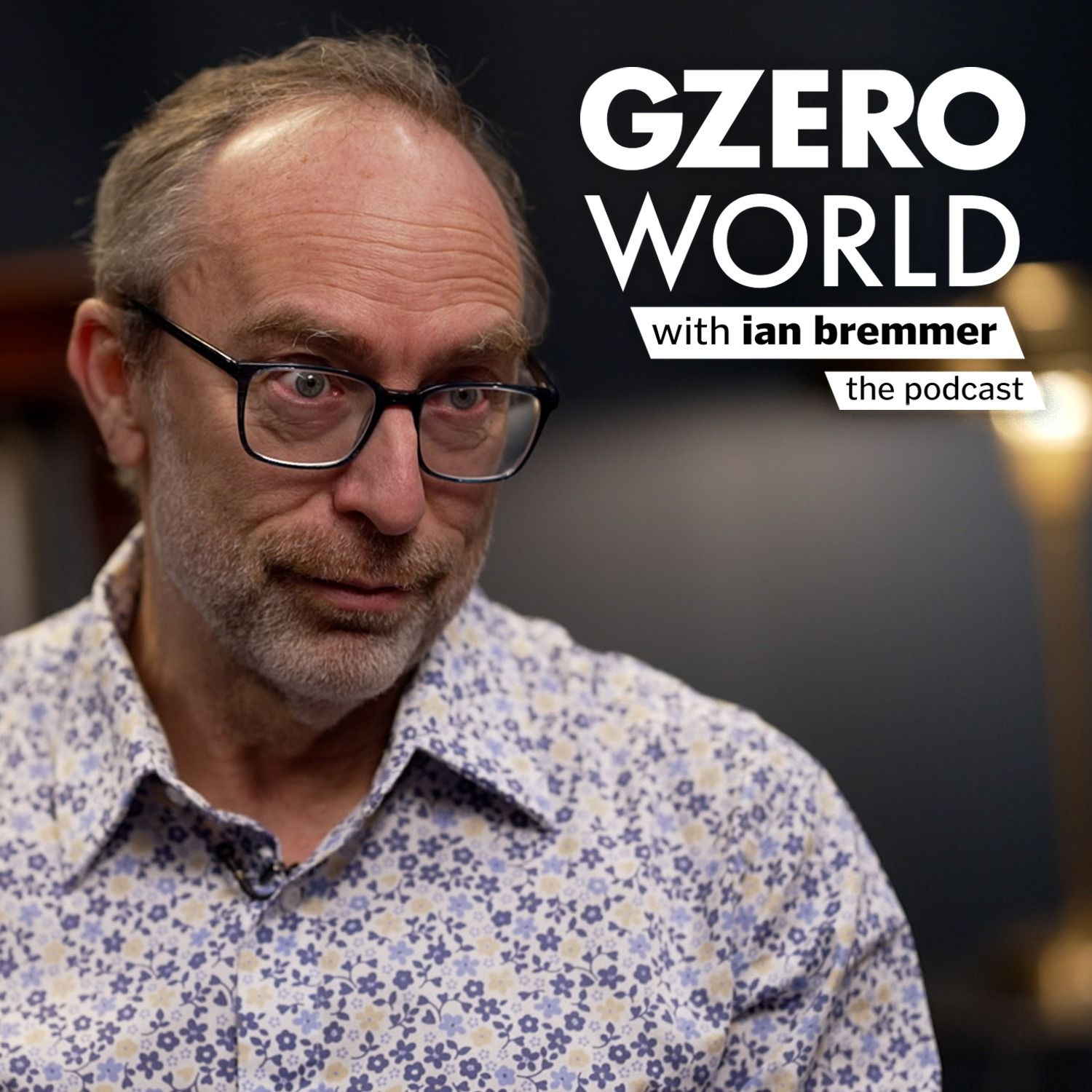
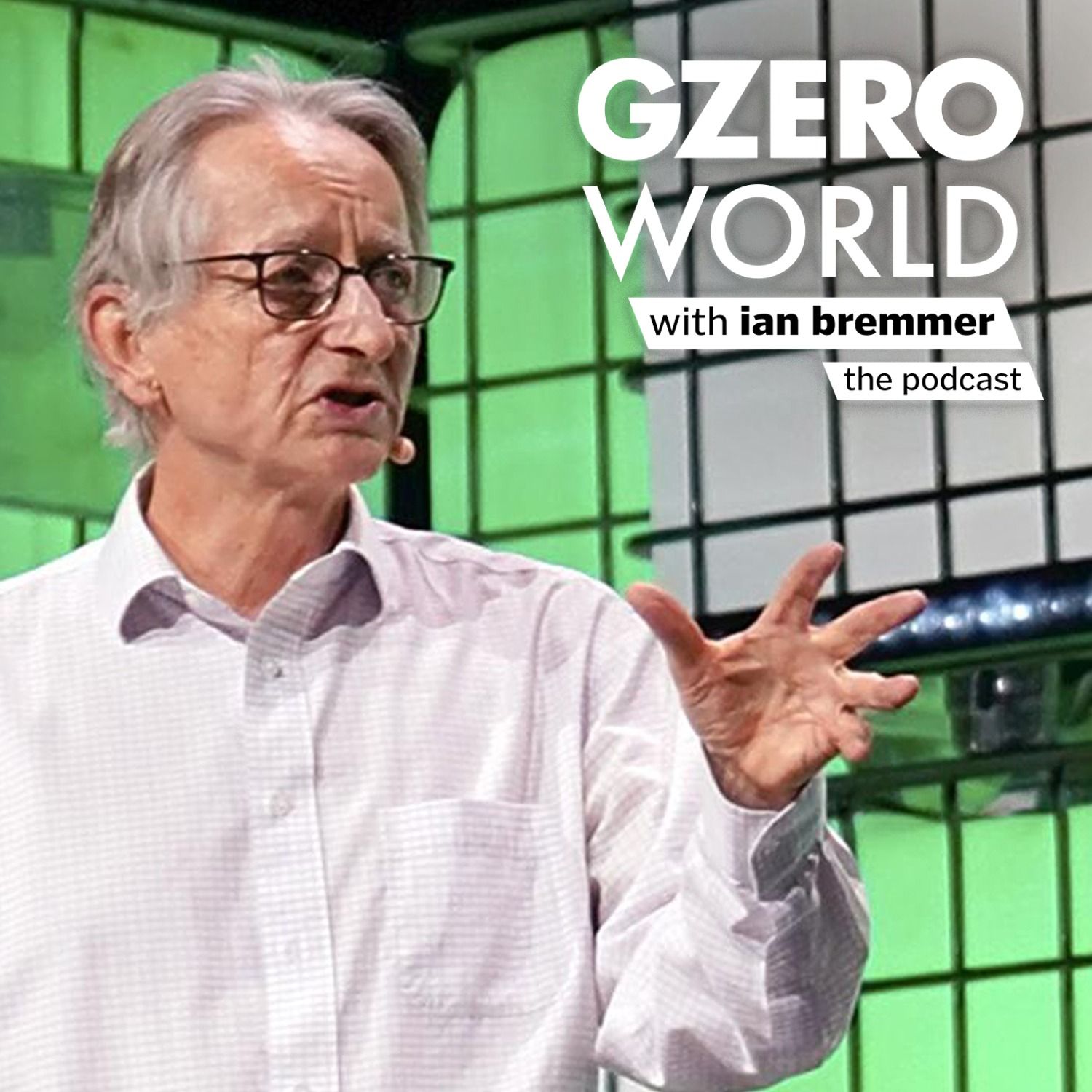

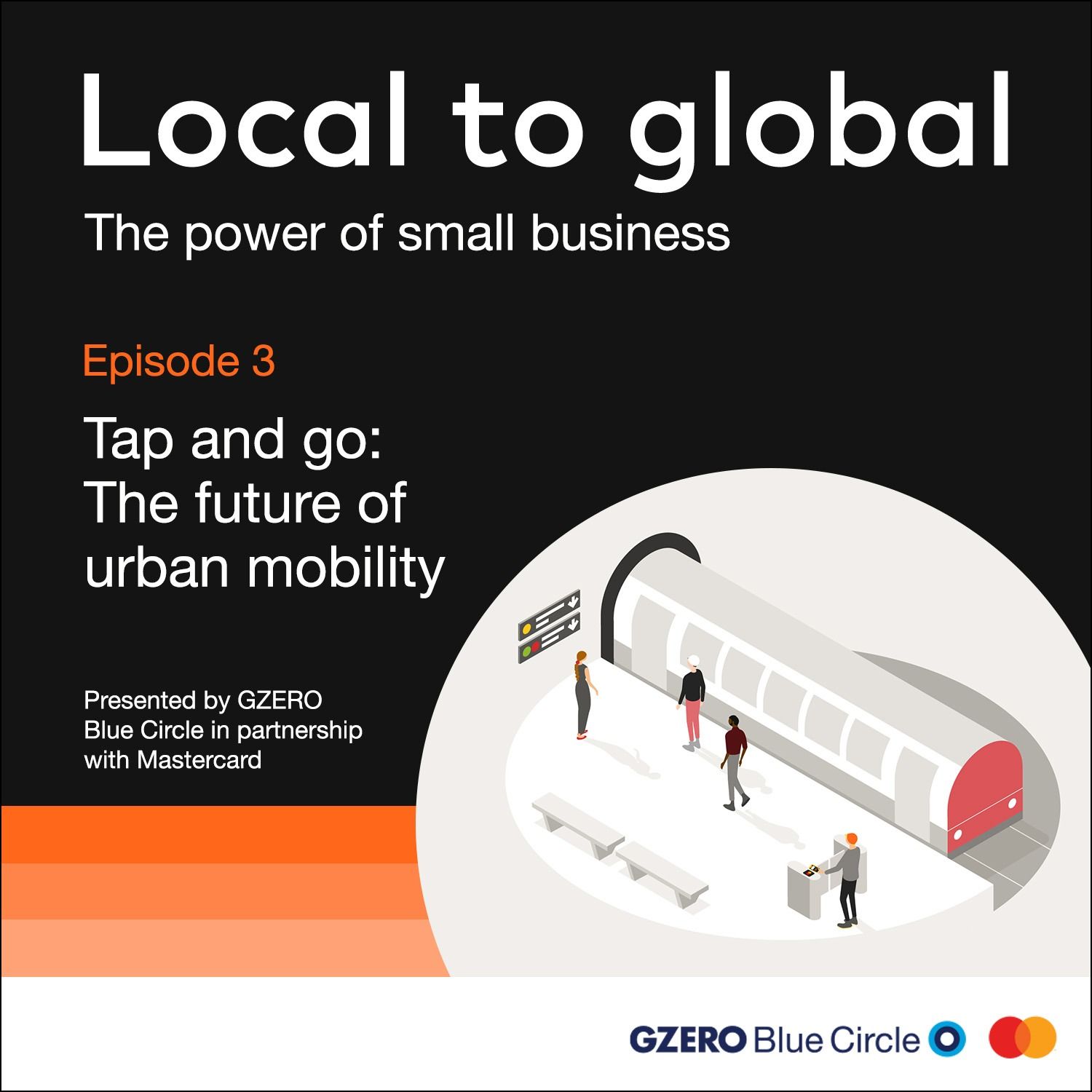



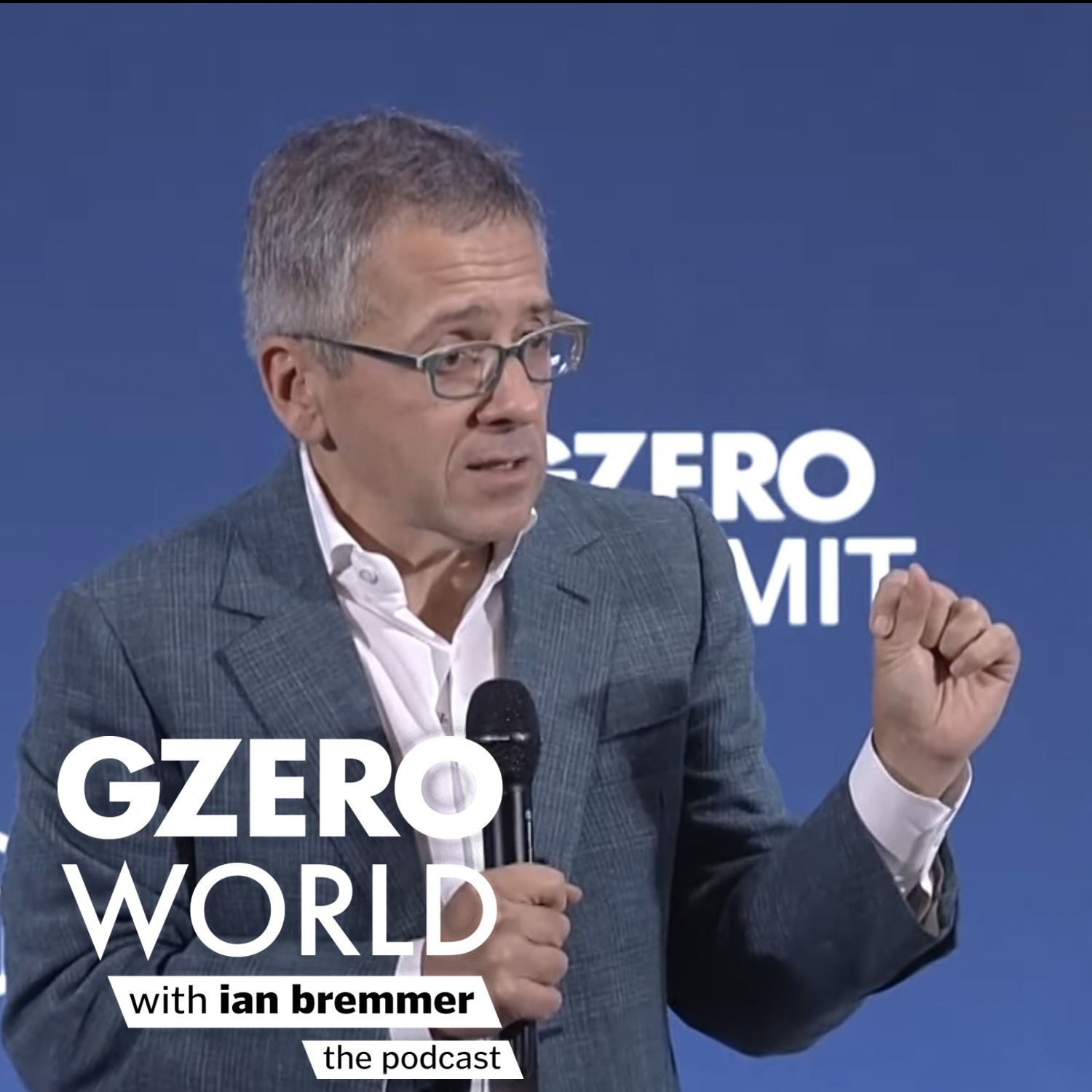


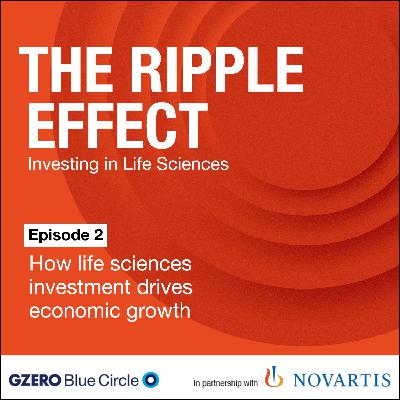
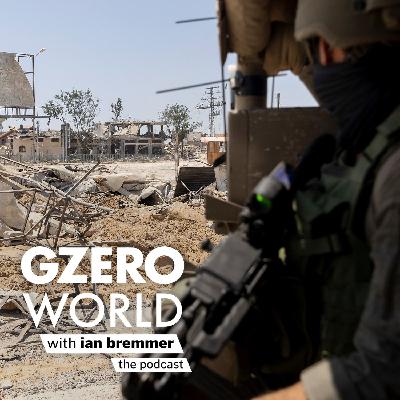
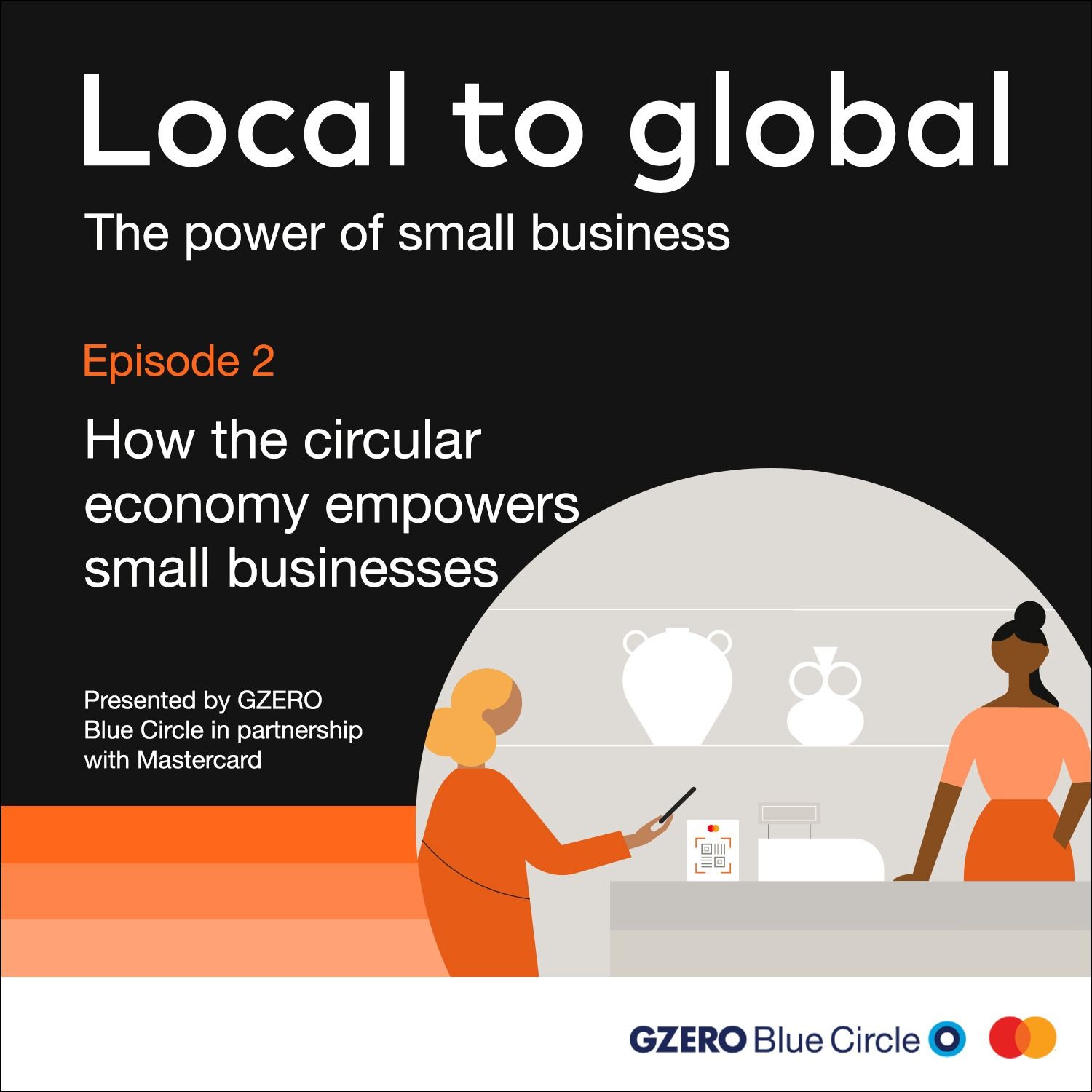

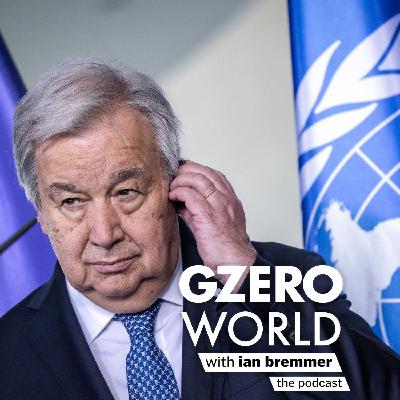








thanks
Apparently just a platform for oil industry shills to deliver lengthy, fact-free word salads about how committed they are to energy transition and how gosh-darn important it is to not harm big oils profits in the process.
Ian Breemer. Climate Change issue become a joke because the people leading the argument are not serious. They have been hypocrites from day one to this very day and will continue too. So take your climate b.s and shove it. Many rather would prefer to meet their creator through natural causes than been forced into submission and losing freedom to a few scumbags who wants. To be Baal.
When a few decided to take advantage of this crisis and decided to hijack it to achieve their own goals by pushing their wicked agenda. I prefer to meet my creator from natural disasters than these sons of Satan's we call Globalists.
Great conversation. Make it longer.
TL;DL So what are the cities? Except Milan?
Dammit why is it so short? Do two hours next time.
if you haven't gotten a chance to see Dr. Bremmers TED talk from 2015 do yourself a favor and take a peek. it's what led me to follow his writing and podcasting.